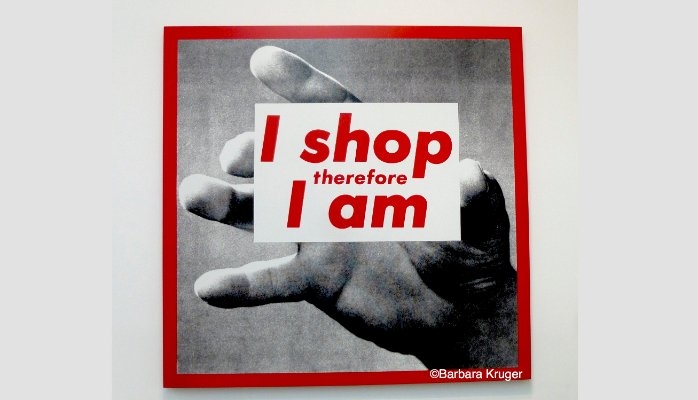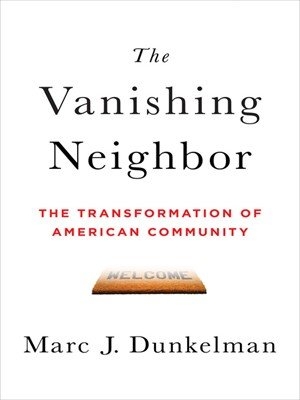
What Harms Community? Part 1: Consumerism
Over the next three weeks I’d like to look at three particular areas that are breaking down community, namely consumerism, globalisation, and technocracy.

Consumerism
Walter Brueggemann, a biblical scholar and collaborator with John McKnight and Peter Block, suggests consumerism operates to the principle: ‘there is not enough, let’s get everything’, a belief in scarcity ‘introduced by Pharaoh’.
Similar to technocracy, consumerism offers a deal that separates the individual from the group or community for a private transaction. In so doing it negates the problem solving role and inventiveness of neighbours and inflates technocracy, and managerialism, and deflates tacit knowledge and amateur impulse, to the point where clientelism and dependency come to be seen as virtues.
Consumerism is therefore an extractive force, since it says: “to meet the requirements to own what I’m selling you must excise something from yourself and your community; then transfer it to a distant corporation or institution”. In this regard, it relies primarily on indebtedness; hence the myth of scarcity is perpetuated with the intent of drawing us into debt with people we are not related to.
Consumerism and professionalisation[1] transmute citizens into clients. Consumerism, of course, is not exclusive to capitalist societies. In the case of State socialism, the Soviet Union during the ‘Cold War’ for instance, had mental health facilities that were among the largest institutions in the world. Clearly these ‘dungeons’, were not populated by people treated as equal citizens. The erosion of citizenship in favour of supine dependence is prevalent throughout most if not all, economic and political systems to one degree or another.
Consumerism is a many-headed Hydra, and individualism is the most two-faced of them all. The allure of the ‘modern world’ towards an individualistic cosmopolitan way of life, in favour of what some pejoratively characterise as a small town parochial one, is almost irresistible. And the consequences of not actively resisting this Chimeric entrapment are devastating for people and the planet.

In The Vanishing Neighbor (2014) Marc Dunkelman writes about the changes in the social architecture of American neighbourhoods. He notes that adults today relate differently than did their grandparents, tending towards a few intimate relationships (the inner rings) and a wide expanse of more distant surface relationships (the outer ring). The casualties are the relationships in between (the middle-ring).
These ‘in between’ relationships are characterised by conviviality, friendship without intimacy, or what the Ancient Greeks called philia[2], what today we might refer to as Civic connections or association. Dunkelman attributes the erosion of the middle-ring to a range of factors including technology, greater mobility, and a growing disconnect with institutions that once mediated the space between civic life and bureaucratic structures.
“We’ve been empowered in nearly every aspect of our lives to move past many of the burdens that once prevented us from pursuing our personal interests and concerns,” he says. The seemingly endless pursuit of our “true self” has sought to fill the hollowness of the middle-ring and in so doing has further eroded our associational lives. The practices of growing associational life and ecological stewardship are not transactional in the market sense, but relational in the local and interpersonal sense.

Marc Dunkelman, author of The Vanishing Neighbour
Measurement therefore is beside the point, since true gift exchange of this kind is never counted up[3], but rather serves to grow a culture that everyone can count on. This leads me to suggest that the best definition of community is the place where gift exchange is cultivated and in turn where citizenship prevails: the opposite of consumerism.
Perhaps the most worrying characteristic of modern day consumerism is that it has become the dominant identity construct in the West, through which we have come to understand ourselves and our place in the world, as Peter Block, Walter Bruggemann, and John McKnight note in An Other Kingdom (2016), ‘it is the sea in which we swim’. Like a new and more virulent strain of colonialism, the ascendency in the dominance of this identity construct is also apparent, and spreading rapidly across the Global South.
It is therefore, hard to take any social justice or environmental activist who does not have an explicit critique of consumerism serious.
Cormac Russell
[1] Chris Larch, The Limits to Satisfaction
[2] https://en.wikipedia.org/wiki/Greek_words_for_love
[3] Greaber, Debt the First 5,000 years
